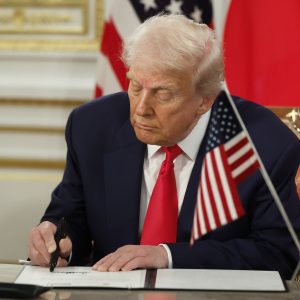Jailed Kashmiri pro-freedom leader ‘murdered’ in custody
Kashmiri pro-freedom leader Altaf Ahmed Shah, who had been in prison for the past five years for advocating the right to self-determination for Kashmiris, passed away on Monday night, a few days after he was diagnosed with late-stage renal cancer, according to his family.
Altaf Ahmed Shah, 66-year-old, was a leader of a prominent pro-freedom organization called Tehreek-e-Hurriyat, and had been an under-trial prisoner in Tihar Jail since July 2017. He led the legal cell of the organization and he played a pivotal role in providing assistance and support to the families of Kashmiri political prisoners. Shah is the third Kashmiri under-trial Kashmiri political prisoner to die as a result of criminal medical negligence of the Indian authorities.
According to the family of Altaf Shah, he had complained of severe pain in his left abdomen two weeks ago, but jail authorities refused to take any action. Later, on September 30th, he was diagnosed with renal cancer that had metastasized and spread to other parts of his body, including his bones.
According to the family, the Indian authorities refused to speak to them, owing to Shah’s involvement in the Kashmiri freedom movement. Shah’s family had not been allowed to meet him, or see him, even as he lay on his deathbed. “It is my whole family’s request to please allow us to see him and consider his bail application on health grounds,” Ruwa Shah, his daughter, had tweeted.
Despite all the pleas of the family, including a letter to Indian Home Minister Amit Shah, Altaf was denied any relief whatsoever, such as a medical bail or detention in his house instead of the prison.
On Monday, Shah went into a coma and the next morning, Shah finally passed away in Indian custody. “Abu (father) breathed his last…as a prisoner,” Ruwa Shah, his daughter, stated in a tweet. The Indian authorities are yet to return the dead body of Shah to his family, who have been waiting at the mortuary.
Shah is said to be a victim of a ‘custodial murder’, as he was deliberately denied the necessary medical care at the most critical time. Shah’s father-in-law, Syed Ali Geelani, 91, also passed away from a number of illnesses under house-arrest. Mohammad Ashraf Sehrai, 77, another pro-freedom Kashmiri leader also passed away in custody, with his family asserting that the authorities failed to provide him with adequate medical care. In December 2019, Ghulam Mohammed Bhat, 65, a member of the Jamaat-e-Islami Jammu and Kashmir, died inside the Naini jail in Uttar Pradesh, due to persistent denial of healthcare.
Kashmiri political prisoners have been incarcerated in various prisons across India and many of them have developed serious health problems due to prolonged incarceration. On numerous occasions, pre-existing health issues have been exacerbated due to the lack of medical treatment and healthy food in jails. Kashmiri political analysts maintain that the Indian authorities actively create conditions that lead to the death of pro-freedom leaders like Shah, hospitalizing them only when they are on the brink of death.
The Prime Minister of Pakistan, Shehbaz Sharif, expressed outrage against India’s custodial killing of Shah, stating that he was “deeply grieved at passing of prominent Kashmiri leader Altaf Shah, son-in-law of Syed Ali Geelani, while in Indian captivity. The Modi regime denied him treatment despite knowing he was a cancer patient. Custodial killings are the norm in Modi’s India. My condolences to the bereaved family.”
Justice for All, a US-based human rights organization, also condemned the custodial killing of Altaf Shah, stating that the illegal imprisonment of Shah and prolonged denial of basic healthcare rights to him makes his death not a natural one but a state-sanctioned systematic murder. The human rights group called for an immediate release of the many ailing and old Kashmiri political prisoners who await a similar fate, and demanded an independent probe into the murder of Shah.







